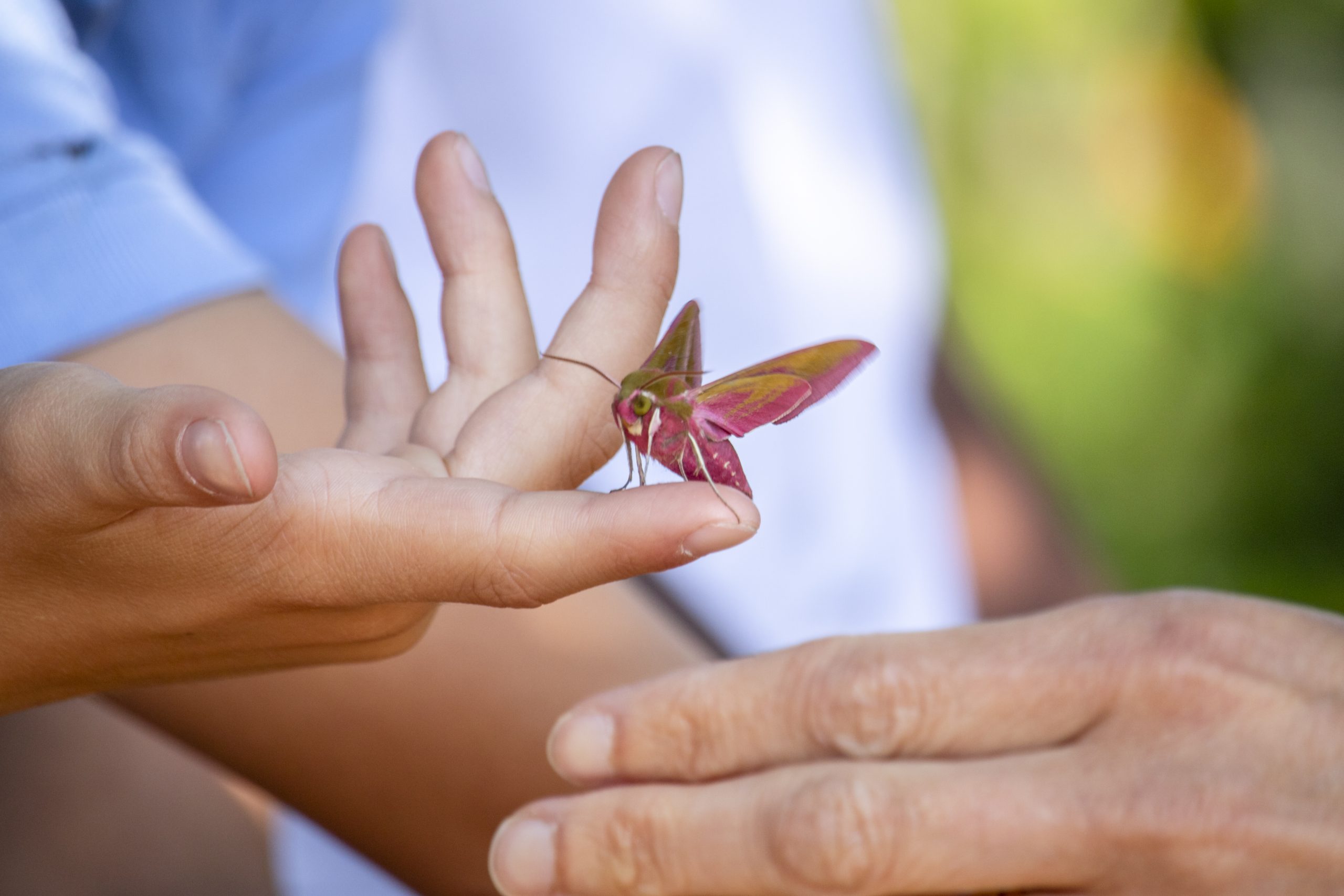Five child-friendly nature activities for the summer holidays
27 Jun 2024
With the school holidays fast approaching, many parents, families and caregivers will be on the hunt for summer activities that are not only purse-friendly but engaging and educational, too – and luckily, leading wildlife charity Butterfly Conservation is on hand to help.
From venturing outdoors to learn about insects to improving maths skills through butterfly spotting, discover the environmental charity's top recommendations for free and fun nature-led activities the whole family will love.
1. Join the Big Butterfly Count
Take part in the world’s biggest butterfly survey this July and August. It only takes 15 minutes, it's fun and free, and also helps scientists understand how butterflies are doing across the UK.
Last year, for the first time ever, the most counted butterfly was the Red Admiral, with a whopping 248,077 recorded! Will it keep the top spot? Help the charity find out by taking part in the Big Butterfly Count as many times as you like, wherever you like, between July 12 and August 4 2024.
For more information, visit bigbutterflycount.org (click here for more) or download the free app.
2. Make and fly a butterfly kite
Not only will a fun craft project get your little ones outside in the fresh air, the charity's simple but effective butterfly kite-making activity is easy and requires few materials. No breeze? No problem! Try running with the kite behind you to get it to soar... Or should that be flutter?
Click here to access the template as well as a handy video guide.
3. Learn about butterfly body parts
Ever wondered how many legs a butterfly has? Or if they can smell? Spark little ones’ curiosity this summer holidays with some fun facts about butterflies before heading out to see what you can spot.
Click here to watch Butterfly Conservation’s video all about butterfly body parts, learn more and plan your fun lesson.

4. Grow a wild home for butterflies and moths
Growing plants in pots can provide valuable food for butterflies and moths in any outdoor space, whether it be a patio, balcony, rented garden, or even a front doorstep! There are lots of plants to choose from that are child-friendly, liked by butterflies, and will thrive in a pot – as long as you remember to water them!
Here are a few of Butterfly Conservation’s top picks:
Nasturtium – this edible plant produces bright, colourful flowers and the leaves are irresistible to the caterpillars of the Large and Small White butterfly. They are really easy to grow from seed and the seeds are a good size for small hands to handle too.
Herbs – herbs make fantastic pot plants and can be enjoyed by humans and wildlife alike. Chives, Marjoram, Thyme, and Bergamot all produce flowers that insects love and are usually easy to find as seeds or plants from a garden centre, supermarket or online.
Salvia – this attractive plant grows well in containers,and there are lots of different sizes and colours to choose from. The flowers are loved by pollinators and their bushy leaves provide shelter for many other insects.
For more ideas, visit wild-spaces.co.uk (click here for more).
5. Look out for caterpillar clues
Spotting caterpillars can be tricky. While a few bright and colourful ones stand out, most are the masters of disguise! From looking for munched leaves to heading out under the cover of darkness, Butterfly Conservation has lots of top tips for spotting caterpillars, as well as resources to plan an educational caterpillar hunt with children of all ages.
Click here for a step-by-step guide and free downloadable worksheets.

Our membership offer
Be part of the largest national children's sector membership organisation in Scotland
Click here for more
Participation and engagement work
Find out more about how we embed the inclusion and participation of children and young people in our work
Click here for moreEnquire
Find out more about Enquire, the national advice and information service for additional support for learning
Visit the websiteReach
The website for young people offers advice and support on accessing their rights
Visit the website